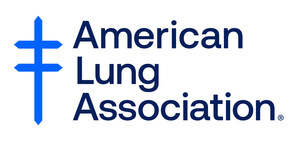2024 marks the 10th anniversary of the Lung Association's movement to end lung cancer—LUNG FORCE. Through education, advocacy and research, LUNG FORCE is working to ensure that fewer people are diagnosed and those living with the disease live longer. Since 2014, LUNG FORCE has raised more than $30 million for lifesaving lung cancer research, expanding its research commitment by 286%.
"We're proud to mark a decade of progress with the 10th anniversary of LUNG FORCE and Turquoise Takeover. In the last 10 years, we have seen incredible advancements in early diagnosis, treatment and survivorship from lung cancer. In fact, the five-year survival rate has increased by over 50% in the past decade," said Harold Wimmer, President and CEO of the American Lung Association. "This year's campaign underscores our unwavering commitment to ending lung cancer and ensuring that fewer individuals are diagnosed, and those affected by the disease live longer, healthier lives."
The annual Lung Cancer Action Week and Turquoise Takeover celebration unites America to stand together against lung cancer. Each year, the organization turns the nation turquoise, the signature color of LUNG FORCE, by illuminating buildings and landmarks across the U.S., encouraging the public to wear turquoise and post a selfie on social media, and by telling the stories of those impacted by lung cancer to raise awareness of the disease and save more lives.
The American Lung Association shares six actions people can take this week to help with efforts to end lung cancer:
- Join a local LUNG FORCE Walk or create a DIY Fundraiser to benefit those affected by lung cancer
- Share your lung cancer story to raise awareness and inspire hope
- Get screened for lung cancer if you are eligible
- Test your home for radon
- Learn about the latest educational information on lung cancer
- Donate to help achieve a world free of lung cancer
Lung cancer is the leading cause of cancer deaths, and about every two minutes, someone is diagnosed with the disease. Thankfully, survival rates of lung cancer have significantly increased in the last 10 years. This encouraging trend has been aided by improved early detection of the disease through lung cancer screening and advancements in research, which have resulted in more than 50 new lung cancer treatments approved by the U.S. Food and Drug Administration (FDA) since 2016.
Visit LUNGFORCE.org to learn how you can get involved during Lung Cancer Action Week and join the effort to end lung cancer.
About the American Lung Association
The American Lung Association is the leading organization working to save lives by improving lung health and preventing lung disease through education, advocacy and research. The work of the American Lung Association is focused on four strategic imperatives: to defeat lung cancer; to champion clean air for all; to improve the quality of life for those with lung disease and their families; and to create a tobacco-free future. For more information about the American Lung Association, which has a 4-star rating from Charity Navigator and is a Platinum-Level GuideStar Member, call 1-800-LUNGUSA (1-800-586-4872) or visit: Lung.org. To support the work of the American Lung Association, find a local event at Lung.org/events.
About LUNG FORCE
The American Lung Association's LUNG FORCE initiative unites people impacted by lung cancer and their caregivers across the country to stand together against lung cancer, the leading cancer killer. Increased awareness about lung cancer, more education on lifesaving screening and more research funding are critical to fuel lifesaving breakthroughs. Through education, advocacy and research, LUNG FORCE works to provide hope to all those impacted by the disease and save more lives. Find out more at LUNGFORCE.org.
American Lung Association • 55 W. Wacker Drive, Suite 1150 • Chicago, IL 60601
1331 Pennsylvania Ave. NW, Ste. 1425 North • Washington, D.C. 20004
1-800-LUNGUSA (1-800-586-4872) Lung.org
CONTACT: Jill Dale | American Lung Association
P: 312-940-7001 C: 720-438-8289 E: [email protected]
SOURCE American Lung Association





Share this article